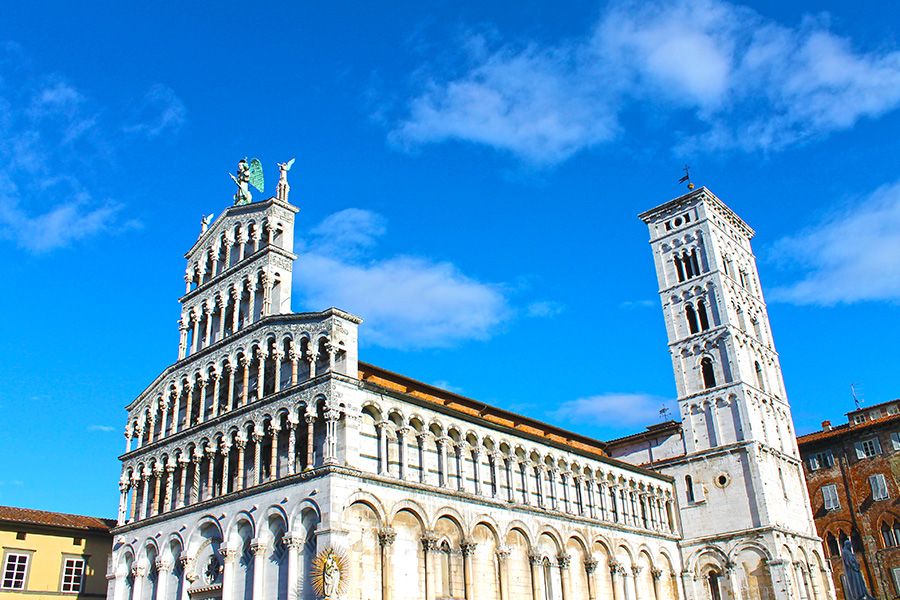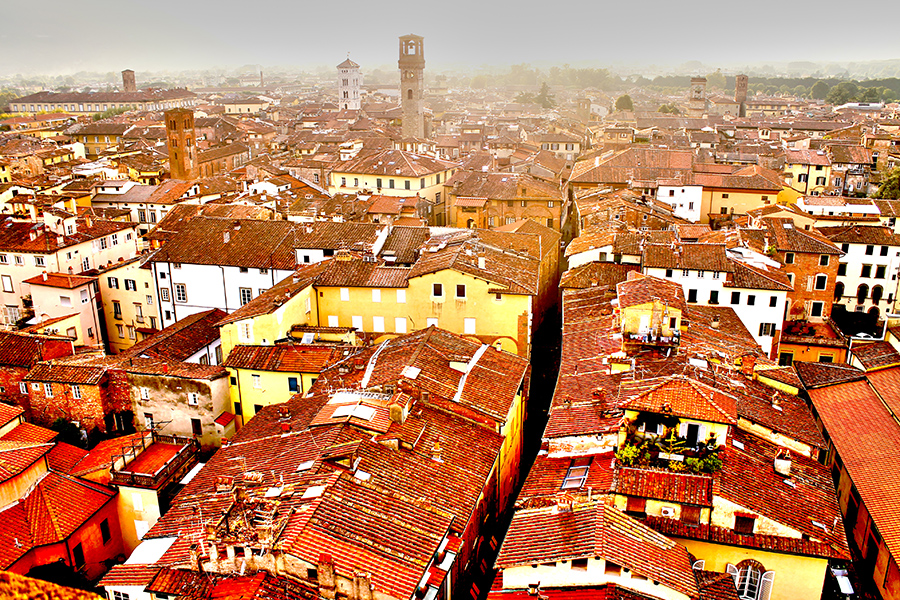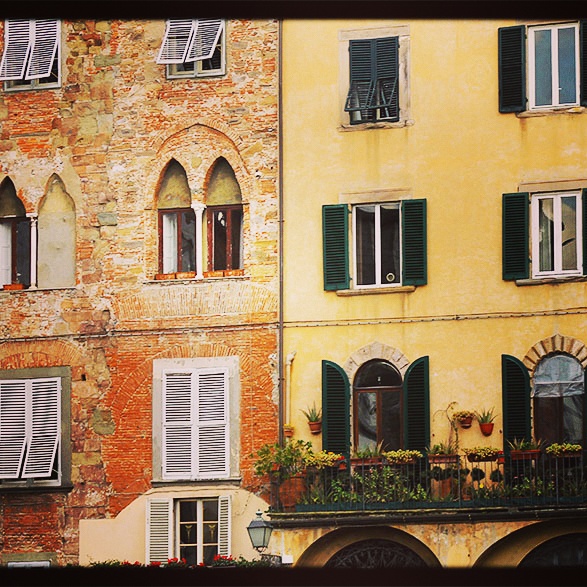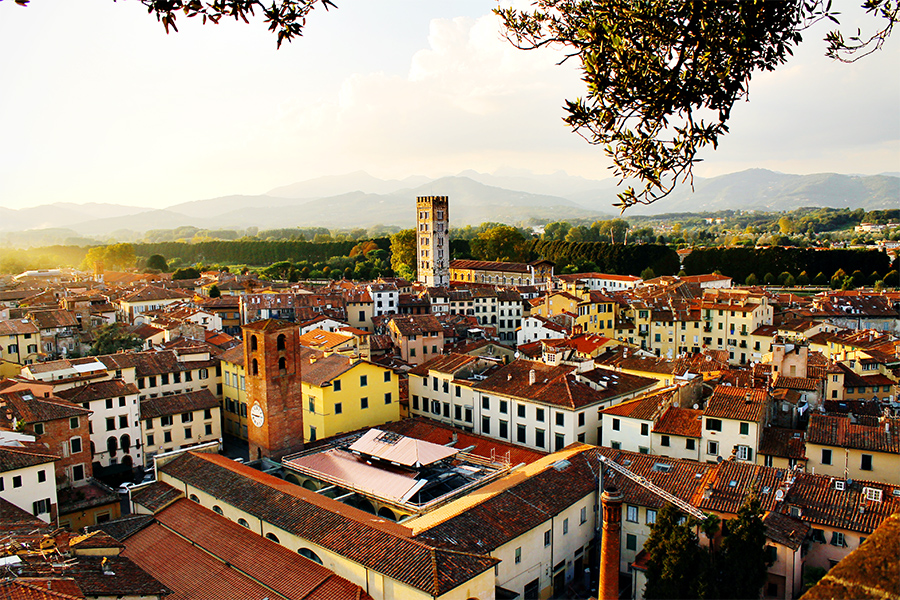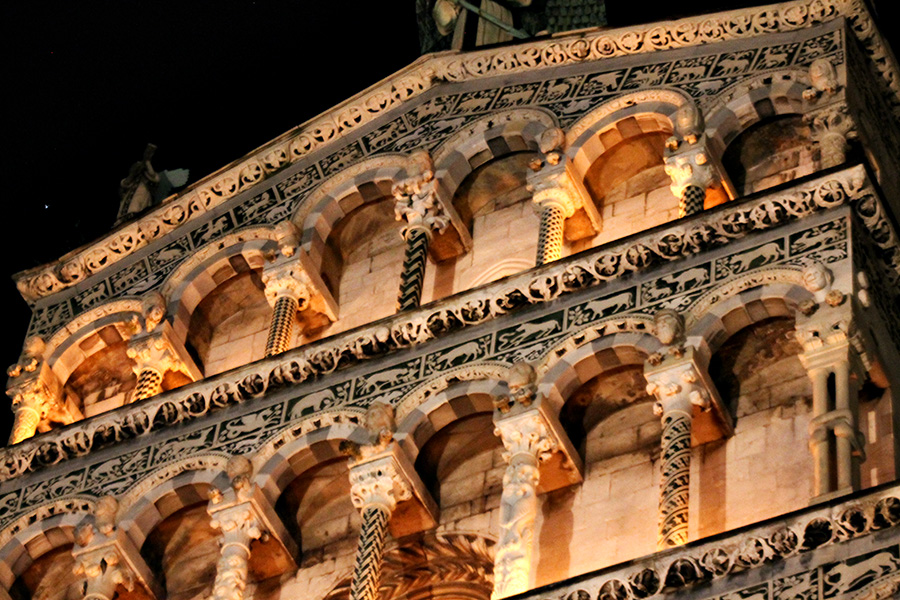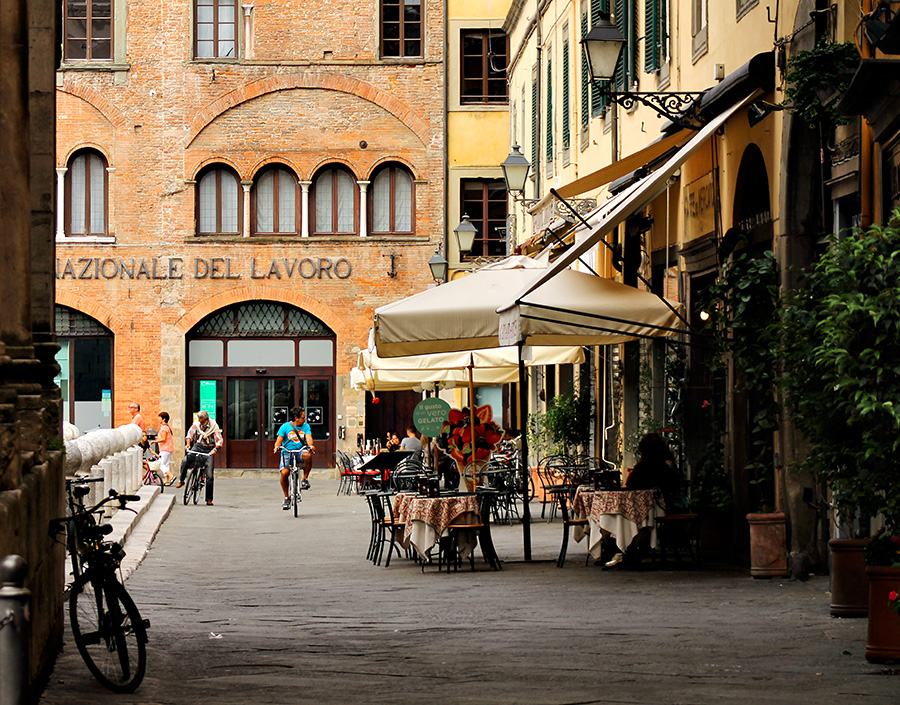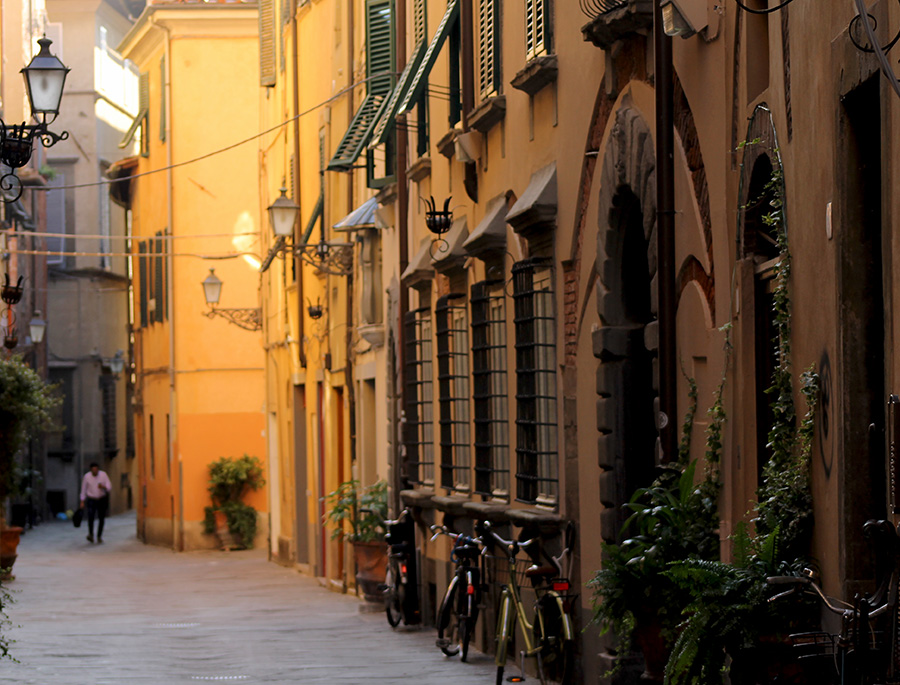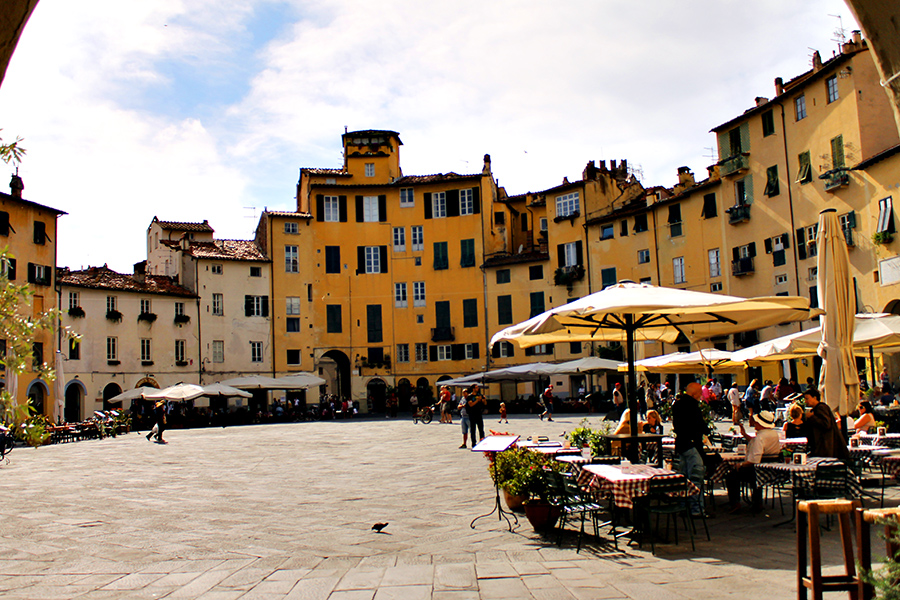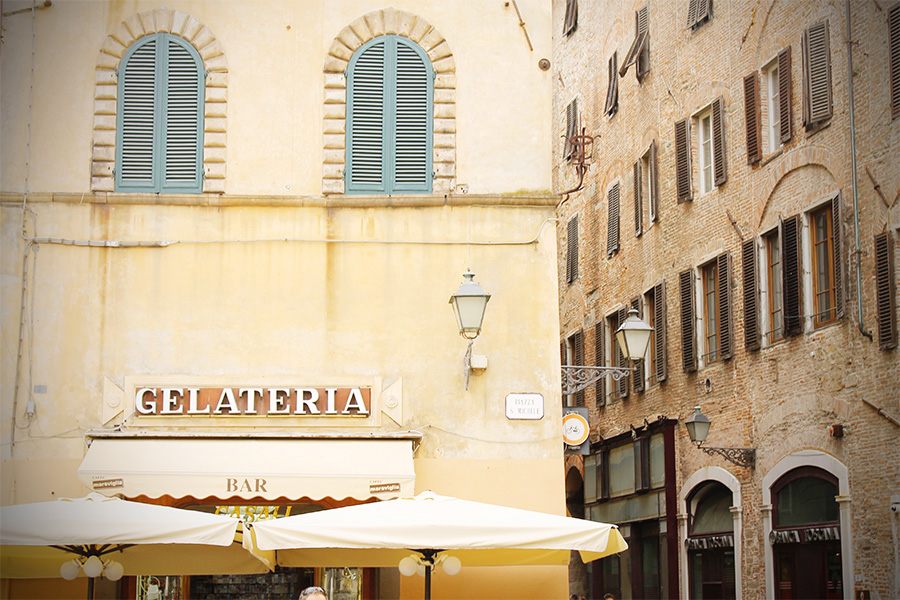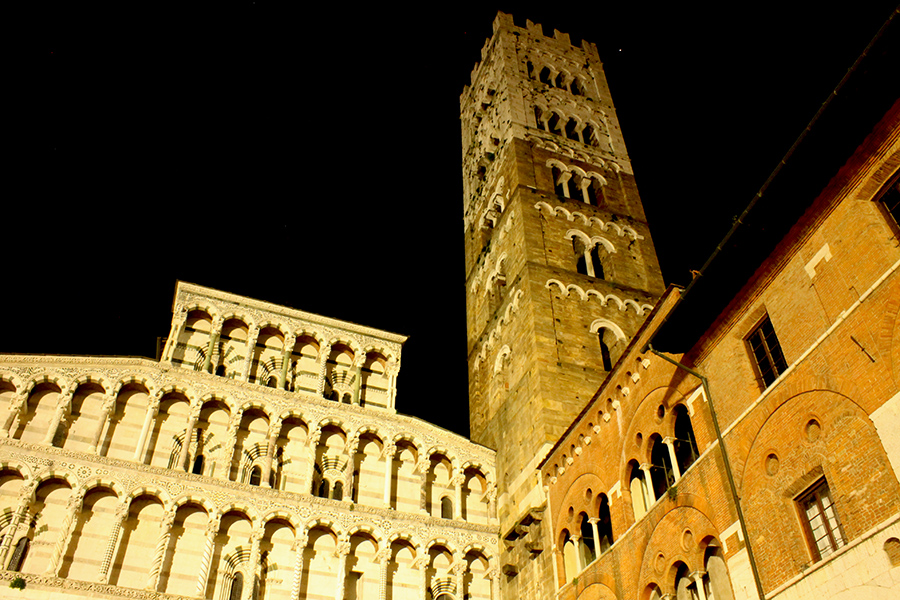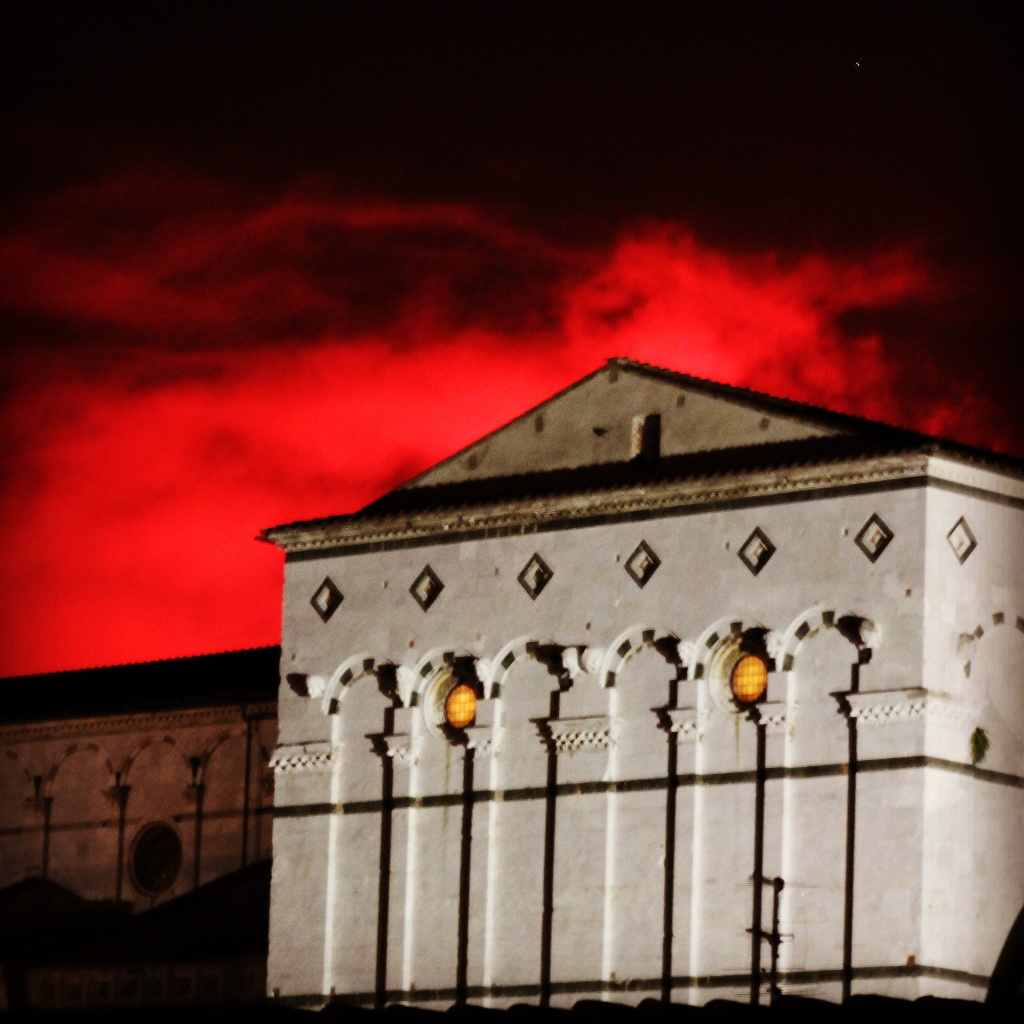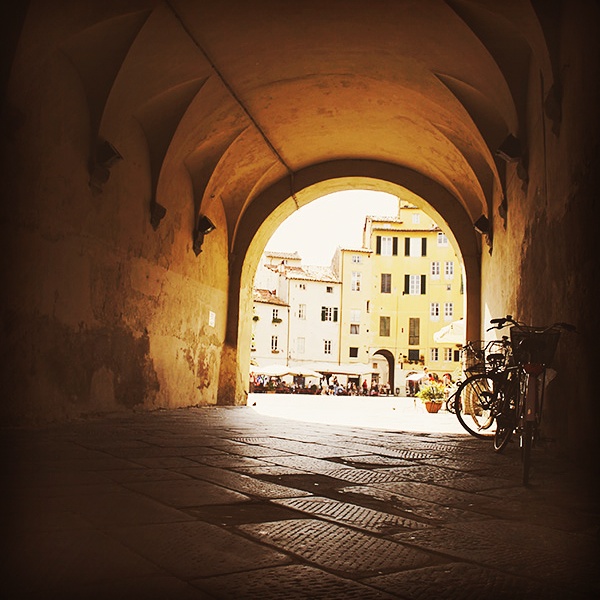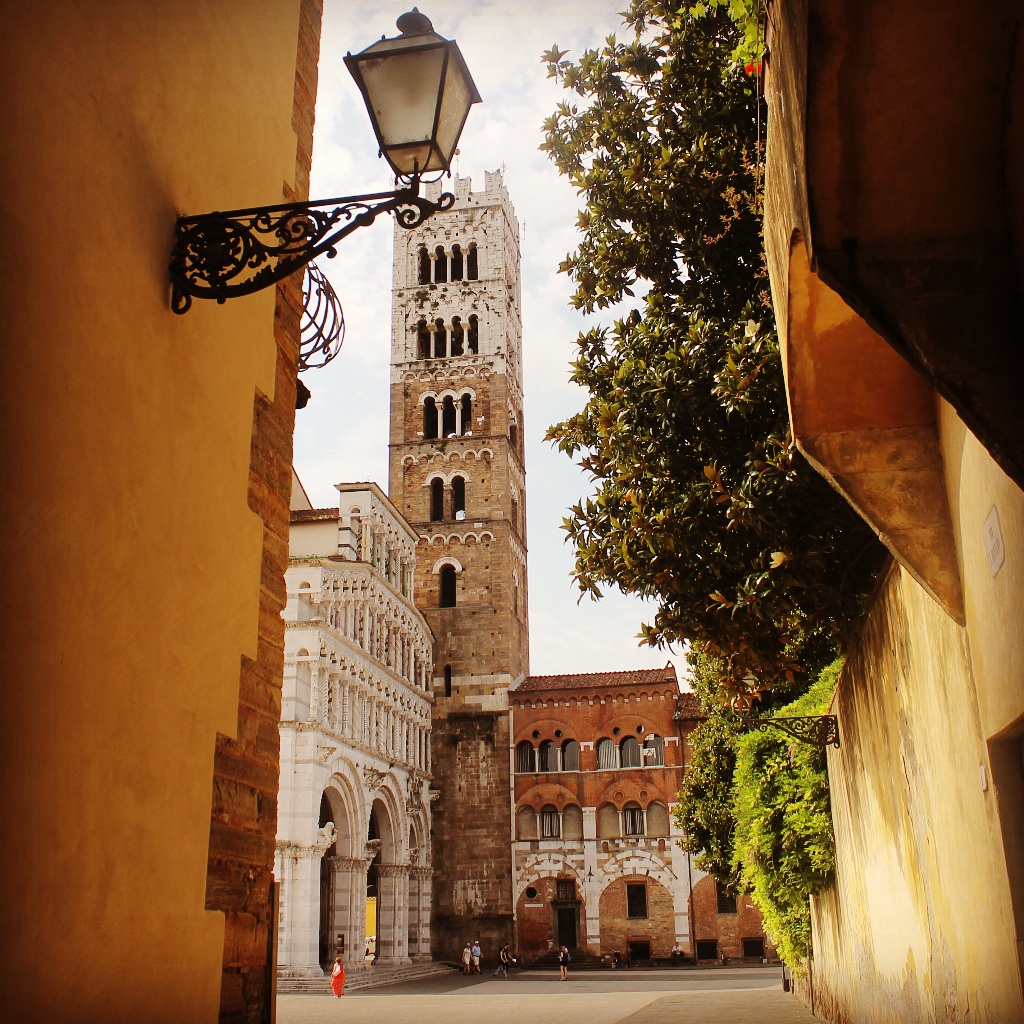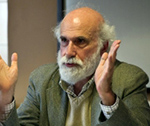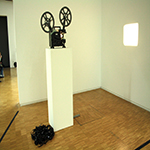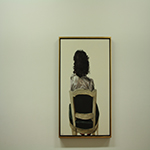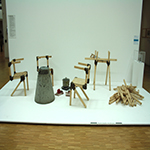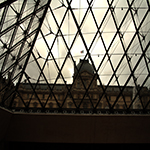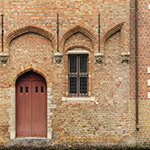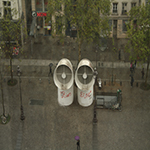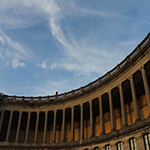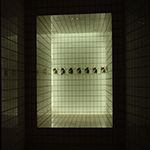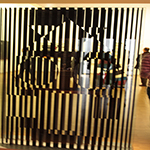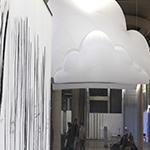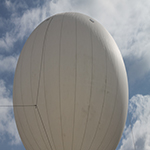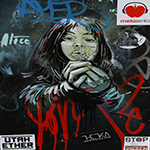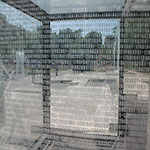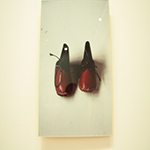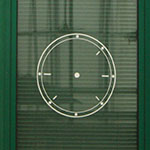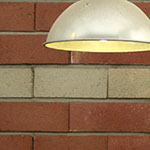Palazzo Bernardini
Conference Room: Giacomo Puccini
Via Santa Croce 41 – 55100, Lucca, ItalyConference program
- November 13, 2015
- 08:30 - 09:00Participants Registration (Registration Desk)
- 09:00 - 09:30Welcome and Opening Remarks - Open Floor Workshop: Asking Big Questions Again
- 09:30 - 10:30Keynote Speech: James E. Block - From Scarcity to Emancipation: Renewing the Promise of Post-Industrial Liberation
- 10:30 - 11:00Coffee Break and Snacks (Café Fellini)
- 11:00 - 13:00Panel 1: Politics of Visual Representation: From Artistic Collectives to Deconstructed Identities in Performing Arts
- 13:00 - 14:30Tuscan Specialties Lunch –Restaurant Bernardini
- 14:30 - 16:30Panel 2: Urban Transformations: Personal Urbanities, Public Spaces and Historical Readings of Urban Image Construction
- 16:30 - 17:00Coffee Break and Snacks (Café Fellini)
- 17:00 - 19:00Panel 3: Performing Identity: Reflecting on Artist’s Constitution, Stewardship, and the Social Reception of Artistic Performance
- 19:00 - 19:45Welcome Drink – Aperitivo in Lucca
- 19:45 - 21:30Optional Social Dinner in Lucca
- November 14, 2015
- 09:00 - 11:00Panel 4: Urban Transformations, Transition and Change in Urban Image Construction
- 11:00 - 11:30Coffee Break and Snacks (Café Fellini)
- 11:30 - 13:00Panel 5: The Sequential Art: Comics as a Cultural Nexus
- 13:00 - 14:30Tuscan Specialties Lunch – Restaurant Bernardini
- 14:30 - 16:30Panel 6: Society, Politics and Economies: Critical Evaluations of Systems, Movements, Markets and Social Practices
- 16:30 - 17:00Coffee Break and Snacks (Café Fellini)
- 17:00 - 19:00Panel 7: Art History and Representations of Identity
- 19:00 - 19:30Concluding Remarks and Discussions
- 19:30 - 21:00Optional Social Dinner in Lucca
- November 15, 2015
- 09:30 - 12:00Optional Walking Tour of Lucca
- November 13, 2015
The Fourth Forum of Critical Studies: Asking Big Questions Again
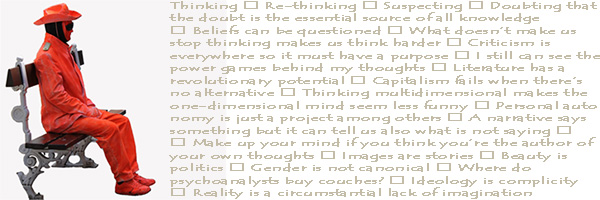
- Conference Description
- Participant’s Profile
- Registration and Fee
- Social Activities and Publication
- Important Dates
- Venue and Directions
- Conference Program
- Keynote Presentation
- Panel 1
- Panel 2
- Panel 3
- Panel 4
- Panel 5
- Panel 6
- Panel 7
The Fourth Euroacademia
Forum of Critical Studies
Asking Big Questions Again
13 – 14 November 2015
Palazzo Bernardini
Lucca, Tuscany, Italy
Keynote Speaker:
James E. Block (DePaul University, Chicago, USA)
From Scarcity to Emancipation: Renewing the Promise of Post-Industrial Liberation
Conference Description:
Some say that the 21st Century or modernity altogether made humans more concerned with doing rather than being. As the classical Greek civilization valued most the reflexive thinking as a form of freedom from natural necessities, contemporary times profoundly involve individuals and the imaginary accompanying social practices in a restless logic of consumption, competition and engagement that profoundly – or some would say, radically – suspends or indefinitely postpones the autonomous capacity of human beings to question and reflect upon the social order and the meaning of social practices. The fast advancement of a peculiar logic of post-industrial societies, the gradual dissolution of alternative models to the capitalist logic and a multitude of other alerting factors pushed ahead a global spread culture of one-dimensional productions of meaning that advances a closure rather than a constant reflexive re-evaluation of cultural and social practices.
Many alternatives at hand are often condemned to marginality or lost in the quasi-plural practices where everything goes as long as it’s part of an intellectual market. The ‘fatal strategies’ of post-industrial societies to keep individuals captive, busy and seduced by contingent social arrangements and economic practices minimized the questioning detachment required to evaluate and give meaning through reflexive criticism and unlimited interrogation. Various labels were given to our unfolding times from apocalyptic ones to some more comforting yet, not by chance, lacking some vital optimism. Despite a wide-spread discontent and suspicion towards daily realities of our current societies, most of big questions are often left outside by the self-involved active pursuit of an imagined well-being that is no longer transgressed by harsh critical evaluation of its meaning. The academic arena itself also advances, supports, integrates and promotes limited particular methodologies that generate an effect of mainstreaming and often keeps researchers or practitioners out of the battle-ground for big questions.
The ongoing economic crisis made reality even harsher and pushed ahead the need for more thinking as many habitual categories lost their meaning or relevance. New ways of thinking could transgress some inappropriate conceptions or misconceptions that preserve their centrality due to the mechanics of habit. This is a time when a call to thinking is well-placed. This is a call to arms for critical studies that promotes alternative, questioning and multidimensional thinking. It is based on the belief that thinking more is asking more and the answers come from creative constructive reasoning if left unbiased.
The Fourth Euroacademia Global Forum of Critical Studies aims to bring into an open floor the reflexive and questioning interaction among academics, intellectuals, practitioners and activists profoundly concerned with evaluative understandings of the world we’re living in. The focus of the forum is to initiate an arena where no question is misplaced and irrelevant as long as we acknowledge that evaluation, critical thinking and contestation are accessible trajectories to better understand our past, present and alternative scenarios for the future. The Forum is also an open stage for sharing existing or ready formed intellectual visions and expose them to dialogue and scrutiny in a critically reflective environment.
Participant’s Profile
The conference is addressed to academics, intellectuals, researchers and professionals, practitioners and activists profoundly concerned with evaluative understandings of the world we’re living in. As the nature of the conference is intended to be multidisciplinary in nature and dialogical in practice, different academic backgrounds are equally welcomed.
Post-graduate students, doctoral candidates and young researchers are welcomed to submit an abstract. Representatives of INGOs, NGOs, Think Tanks and activists willing to present their work, research, experiences or reflections are welcomed as well to submit the abstract of their contribution. Euroacademia does not promote the ‘byzantine’ association of people with their institutions. As well the distinction between senior and junior researchers is not applied as a cleavage.
Abstracts will be reviewed and the participants are selected based on the proven quality of the abstract. The submitted paper for the conference proceedings is expected to be in accordance with the lines provided in the submitted abstract.
Registration and Fee
Registration process is now closed
The Participation Fee Includes:
- the registration fee
- participant’s package with all the materials for the conference
- eligibility for publishing of the presentation in the conference volume
- a copy of the electronic volume
- access to Euroacademia discussion group and newsletters
- 2 daily coffee brakes with typical Italian snacks and refreshing drinks during the conference (water/sodas)
- sparkling wine Tuscan aperitivo with snacks on 13th of November 2015
- a 4 course Tuscan specialties lunch on 13rd of November 2015
- a 4 course Tuscan specialties lunch on 14th of November 2015
- certificate of attendance
- access to optional social program
- an optional guided walking tour of Lucca on Sunday 15th of November 2015 in the morning with the possibility to visit also the Piazza dei Miracoli with the Leaning Tower in Pisa in the afternoon
Social Activities and Publication
A specific spot in the conference program will be dedicated to social networking and therefore all the participants interested in setting or developing further cooperation agendas and prospects with other participants will have time to present and/or promote their project and express calls for cooperation.
Photos and videos will be taken during the conference and the organizers will consider through the participation of selected presenters or members of the audience that the agreement for being photographed or filmed during the event was granted through registration to the event. Please notify the organizers in written form prior to the the event if you are a confirmed participant and would prefer otherwise.
A specific setting (Social Corner) for promotional materials connected with the topic of the conference will be reserved for the use of the participants. Books authored or edited by the participants can be exhibited and promoted during the whole period of the conference and can also be presented within the conference package based on prior arrangements.
An optional dinner and as social event will be organized for the first and second evening of the conference in a typical Italian cuisine restaurant as optional program for the willing participants. The social dinner will be held based on participant’s prior confirmation and it will cost around 25 Euro to be covered by the participants individually on-site at the restaurant.
Publication:
Selected papers will be published in an electronic volume with ISBN after the confirmation of the authors and a double peer-review process based on an agreed publication schedule. All the papers selected for publication should be original and must have not been priory published elsewhere. All participants to the conference will receive a copy of the volume.
| Important Dates & Deadlines | |
|---|---|
| 5 September 2015 | Deadline for Submitting Panel Proposals |
| 5 October 2015 | Extended Deadline – 300 words abstracts and details of affiliation |
| 6th of October 2015 | Latest notification of acceptance |
| 8th of October 2015 | Sending the Registration Form |
| 12th of October 2015 | Payment of the conference participation fee |
| 24th of October 2015 | Sending the draft paper to be uploaded on the web site of the conference |
| 30th of October 2015 | Publication of the conference program and uploading the draft papers on the website |
| 13th of November 2015 | The conference commences at 9.00 am |
Venue and Directions
The conference will take place in the XVIth century Palazzo Bernardini, centrally located in the heart of Lucca, few steps away from the Piazza San Michele with its beautiful San Michele in Foro church and the renaissance walls that surround the historical city, making easily accessible within a walking distance any part of its amazing Middle Ages or Renaissance treasures. Via Santa Croce, 41 Lucca is one of the most beautiful cities of Tuscany, a treasure of beauty, culture and history, preserving exquisitely the signs of past kingdoms and dominions, the beauty of nature and the works of many renown architects and artists. Dante spent a part of his exile in Lucca. Located between Florence and Pisa, Lucca is the home town of Giacomo Puccini and Luigi Boccherini. Is a town where each of the streets has a story to tell. The city walls are the best preserved Renaissance walls in the world, offering the opportunity of a relaxing and enchanting ‘passeggiata’ (promenade) or a bike ride with amazing views over the surroundings. Piazza Napoleone -one of the main squares – was built in the time of Napoleonic conquest when the city was led by Napoleon’s sister Elisa Bonaparte. It is rivaled in beauty by Piazza del Amfiteatro, built to maintain the shape of the Roman Amphitheater built during the I and II centuries that could accommodate over 10,000 spectators. A city of 100 churches, Lucca is labyrinth of small streets that hide secrets to be discovered.
Palazzo Bernardini
55100 Lucca
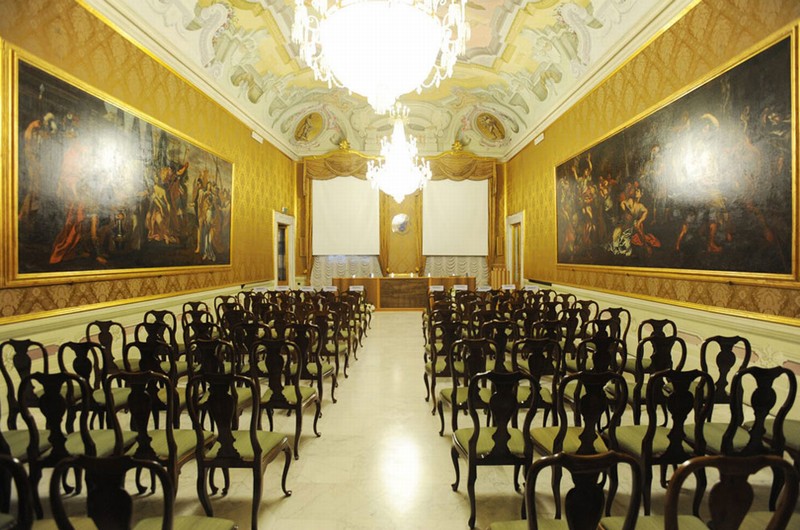
Lucca is very easy to reach both by bus as well as train from both Pisa and Florence, making it perfect for anyone getting around solely on public transportation. The train station is right outside the southern walls, with an entrance below the balcony of San Colombano that brings you right behind Lucca’s cathedral and into the heart of the small walled town. When arranging your travel by plane, book a flight to Florence (Petrola) or Pisa (Galileo Galilei) airports. The easiest way to reach Lucca is from Pisa airport that requires a 25 minutes public bus or train travel right from the airport. From Florence the travel by bus or train takes about 50 minutes. Make sure that your flight arrives earlier during the day as after 22.00 buses or trains to Lucca are no longer available. Taxis are available in Pisa airport and will cost around 50 Euro until your destination in Lucca. If your flight arrives later in the night, book a room for the night in either Florence or Pisa, and start your travel to Lucca in the morning since buses and trains are available from 5.30.
See an interactive map:
HERE
Conference participants are fully responsible for arranging the accommodation and travel to Lucca.
The Conference Agenda is available on the right sidebar.
The Conference Program is available below by clicking the panel tabs.
Keynote Presentation
Keynote Speaker:
James E. Block (DePaul University, Chicago, USA)
From Scarcity to Emancipation: Renewing the Promise of Post-Industrial Liberation
James E. Block is professor of Political Science at DePaul University (Chicago, USA ). He holds a Ph.D. from the University of Chicago, Committee on Social Thought, J.D. from New York University, and M.A., History of Ideas, from the University of Sussex. He also studied at Columbia University in a joint program with Wolfson College, Oxford.
(See More Here)
- From Scarcity to Emancipation: Renewing the Promise of Post-Industrial Liberation I will, building upon Rousseau, the Frankfurt School, the American 1960s, and my own work, suggest how we might comprehend, access, nurture, integrate, and build upon this emerging humanity to create communities of creativity and expression, mutuality and democracy, play and engagement. After millennia of quiescent compliance and substitute gratification, advancing beyond the neoliberal cage is the call of our time.James E. Block, DePaul University, Chicago, USA
Politics of Visual Representation: From Artistic Collectives to Deconstructed Identities in Performing Arts
- The Collectivity of Art: Collectives of Art, Class War and Peripheral Capitalism in BrazilThis new form of combat and art instruments meant the emergence of artistic collectives. These groups of artists or collectives, in addition to the criticism of art production as individualized production, went beyond to the traditional metier of the visual arts and denied the traditional definition of status of the visual arts to become combative agents in the political and cultural level.Marcelo Mari, Universidade de Brasília / Visiting Professor at Università di Bologna
- Tania Bruguera’s Traveling Autobiographies: A Global PerformanceMy presentation will focus on Autobiography, a piece in two slightly different versions, one to be staged in Cuba and the other, abroad. I will dwell on the Version inside Cuba, held in the Museo Nacional de Bellas Artes during the 8th Havana Biennial (2003). It is this particular work that foregrounds the controversial nature of Bruguera's art which explores the relationship between art, activism and political power. In Autobiography, Tania Bruguera synthesizes image, sound and video, developing new narrative possibilities which encourage the audience to react.Ada Savin, Versailles University, France
- (Dis)embodied Dualities:Deconstructing Identity in Emi Anrakuji’s 1800 Millimètre SeriesAgainst decontextualized and reductive interpretations of her work, I argue instead that Anrakuji strategically deconstructs gender and sexuality, using them only as an entry point in order to ultimately grapple with deeper and larger issues concerning human identity and existence. Through the objectification of the human body in simultaneously figural and abstract images, Anrakuji both embodies and complicates various dualities associated with gender, sexuality, and humanity.Polly Cancro, Pratt Institute, History of Art and Design, USA
- Theatre for Reconciliation: David Hare and David GreigAs a public art form, theatre has long been recognized as a space for the examination and performance of power, protest, intervention, mediation and identity. This paper aims to investigate the relations between the political and the theatrical and to explore the issues of enactment, representation, interrogation and the nature of intervention in two contemporary British plays. Both David Hare and David Greig are occupied and fantasized by The Middle East conflict and thus have produced a number of plays in order to propose exceptional criticism about the prejudices, passions and mutual suspicions.Dilek Inan, Balikesir University, Turkey
Urban Transformations: Personal Urbanities, Public Spaces and Historical Readings of Urban Image Construction
- Personal Urbanities: Domesticating the Public Domainthe paper, through an architectural analysis ranging from classical street-side benches to contemporary digital cities, aims at outlining the progressive change in the representation of urban identities from a collective to a more personal dimension. It describes how public space design, especially during the last thirty years, has redefined its strategies in order to increase the possibilities of personal intervention for users, and it focuses on the gradual shift of this discipline towards other scales, instruments and objectives, in a sudden disciplinary convergence with interior architecture and industrial design.Jacopo Leveratto, DAStU, Politecnico di Milano, Italy
- Public Place and the Challenges of Multiple TransformationThis place can be conceived as a spot of concentrated history that renders visible the roots of the city and offers the individual the opportunity to experience the accumulated history as well as presenting and embracing the individual and collective perceptions of history and identity. This paper develops a conceptual structure to interpret the process of urban and street changes by focusing on post revolutionary multiple urban transformations and the expressions and interactions to public activities represented on people?s daily life.Shiva Shadravan, Technical University of Berlin, Germany
- Politics With a Wrecking Ball: Demolition in Contemporary ArtWhat counter-images of a city do artists create by showing its demolition objects, by transferring the material legacy of these unwanted objects to media like film or photography? The presentation wants to combine a survey of demolition in contemporary art with reflections on collective memory, aesthetics of decay, identity creation ‘ex negativo’ and the role of artists in establishing counter-images of official political measures.Stefanie Gerke, Humboldt Universität zu Berlin, Berlin ,Germany
- Tor Pignattara as Rome’s Banglatown: The Suburb as a Feminine, Racialized SpacetimeThe perceived “invasiveness” and “aggressiveness” of Bangladeshi settlement has engendered over the years a process of gendered racialization that simultaneously racialized and feminized Tor Pignattara and the Bangladeshi community residing there, thus producing an alignment of Bangladeshi–ness with exoticized/exoticizing non-whiteness. This research investigates the spatiotemporal practices that structure the determining conditions of social life in Banglatown through a new materialist approach.Elisa Fiore, Utrecht University, The Netherlands
Performing Identity: Reflecting on Artist’s Constitution, Stewardship, and the Social Reception of Artistic Performance
- Line as the Essence of Becoming-ArtistPhilosophy seems content to address the artist in terms of genius, history, standards, or to analyze his or her radical nature. But what is the essence of the artist? In this paper I argue that line is the essence of becoming-artist: the artist’s privileged relationship with line is one of revisiting the nascent place of form, where bare line is the primordial instantiation of space and time, and that this repetition is paramount to existence through an unfinalizable anticipation of re-creation.Deborah Bouchette, Institute for Doctoral Studies in the Visual Arts, USA
- The Artist as Cultural Producer: A Call to Thinking This paper deals with the importance of an ethos of stewardship that comes with a vision for all games as a new aesthetic form in visual culture generally, but more explicitly, the applications herein of such ethics apply specifically to the group of games for which violence is a key element. I will demonstrate the importance of twenty-first century technological breakthroughs regarding insights of the brain, and precisely, the adolescent brain, and through a Heideggerian and Lacanian lens, I call for thinking between neuroscience and philosophy in order to cognize a hybrid of knowledge for the greater good of humanity.Gale Richardson, Institute for Doctoral Studies in the Visual Arts, Portland, Maine, USA
- Gender Identification of Spectators: Analysis of Chantal Akerman’s FilmsWhat does now construct our gender identification as a spectator when our perception is not a biological determination or patriarchic construction (here it is important to mark Linda Alcoff who explored the problem of identity crisis in cultural feminism). Thus, the research is aimed to analyze the problem of gender identification of Chantal Akerman’s viewer through revision of today’s feminist film discourse on the topic of feminist counterpoint cinema and elaboration of the modern aesthetic and ideological perception problem.Mariia Rybalchenko, National University of Kyiv-Mohyla Academy, Ukraine
- The Opening Shows of the Annual ‘Life Ball’ in ViennaEmerging from all that the Opening Show has always been an interaction of performances (of renowned artists, many of which popular in the gay scene), dance (classical ballet of the Austrian State Opera), iconological representations (Klimt?s Beethovenfries in 2015, Botticelli and others in previous years), fashion shows (e.g. by Gaultier, Versace, Vivienne Westwood, Cavalli, John Galliano, Diane von Furstenberg) and so forth. This leads to working points of queer artistic research with numerous pictorial examples and the question how much queerness there is in different forms of art represented at the shows discussed.Roman Schneeberger, University of Graz, Austria
Urban Transformations, Transition and Change in Urban Image Construction
- Artistic and Diplomatic Exchange between the Republic of Ragusa (Dubrovnik) and Serenissima – Shaping Identity through ArchitectureIn order to shed more light on the reasons of these artistic exchanges, the present paper explores figure of the Venetian architect Marino Groppelli (1662-1728) and builders who came with him from Venice to Ragusa to rebuilt St. Blais’s church after the fire completely ruined it on the 25 May 1706. In the long history of Republic of Ragusa (4,5 centuries) this is the first time that Venetians built in Dubrovnik. The fact that the city’s patron church is placed in the heart of the Old city of Dubrovnik, on the crossing of two most important streets (Placa-Stradun and Pred dvorom) makes this choice even more complex to understand.Anita Ruso, École Pratique des Hautes Études, Paris, France
- 14 Art Stations of the Naples MetroThe Art Stations of Naples Metro are a functional art-project ideated by Achille Bonito Oliva that includes some stops of Naples Metro: in this particular stopping and transit places, special attention was paid to making the environment beautiful, comfortable and functional. The Art Stations originated from a project formulated by the city government with a view to make the urban area’s public transport centers more attractive and to give everyone a chance to get an up-close look at prime examples of contemporary art: here, art works are not considered as furniture, but strictly enclosed in the architecture.Fabiana Susini, University of Florence, Italy
- The Ruins of Rome from Living Places to Non-Places It's now time to tie again the wire of long-lasting practice of reuse, which has been cut by 19th-20th century archaeology; time to go back to a conception of ancient remnants not only as something to admire, but as spaces which can be lived, completely readmitted in the urban context. So we have to substitute the «public use of history» of the fascist age with the «public use of historical monument». Architecture is asked to make the reuse possible: the recent decision of reconstructing the arena of the Coliseum (followed moreover by a harsh debate) can represent a step toward the effective readmission of ruins inside contemporary city and perception.Fabrizio Federici, Independent Researcher
- Global Cities with Local Identites – Chinese Urban TransformationIn the context of the presentation, the topic of the discussion will be whether current and future Chinese urban design approaches develop towards cultural sustainability. It is argued that urban reinnovation transforms towards a cultural sustainable direction, as it seems, by valuing local traditions with a focus on demands and needs of todays urban inhabitants. The objective is to understand the Chinese urban development and its transformation by analyzing the existing yet ever-changing physical environment with the tools of architectural and urban semiotics.Katharina M. Borgmann, University of Duisburg - Essen, Germany
The Sequential Art: Comics as a Cultural Nexus
- Digital Traces: Comics Autobiography in New Media FormsIn scholarship on autobiographical comics, much is routinely made of the individual artist’s stylistic signature, as expressed through what Ann Miller has called “a subjective vision, traced on the paper by the artist’s hand”. In other words, what Johanna Drucker calls the “material form of the trace” is key to the understanding of the “autobiographical pact” in comics, where the mark of the “graphiateur” (Baetens 147) is usually understood as an expression of subjectivity that gives special access to the core of selfhood responsible for making it in the first place. But what happens when the autobiographical trace is either remediated on a computer screen, or, even more radically, created digitally through tools such as Photoshop or a Wacom tablet? As Aaron Kashtan points out, comics created or distributed electronically “have their own modes of materiality, which need to be evaluated independently”, and this paper will therefore examine the specific materiality of digital autobiographical comics, with a special focus on how the relationship between author and reader is influenced by the (re)mediation of the authorial trace in new media forms.Frederik Byrn Køhlert, University of Calgary, Canada
- From the Watergate to Reagan Years: When Captain America Stopped Being a SoldierSignificantly, during the Reagan Years, Cap’s trust and loyalty towards the U.S. government is not reinforced and he keeps his distance, choosing to fight for “the American dream”, shown as different from the official U.S. policy. These two runs of Captain America (Englehart’s and Gruenwald’s) allow us to understand the role of comic books in helping American citizens (and especially the young adults who read them at the time) to negotiate their disappointment towards their leaders while at the same time reinforcing American values. Our main point is that the main continuity of the Marvel universe interestingly questions contemporary U.S. History, while at the same time reinforcing a sense of ever-lasting American values, and the immortality of the American Dream. And Captain America is the perfect metaphor of it.Théo Touret, University of Picardy-Jules Verne, Amiens, France
- Silent Sequential Narratives: Bearing Witness to a Unique FormThe article will look closely at two of the ‘silent’ graphic novels represented in the exhibition; ‘A-Z’ by Lars Arrhenius and Eric Drooker’s ‘Flood!’. Though each illustrator’s visual signature is distinct they invite the viewer to wander, inhabit and dwell in spaces and places that causes these to linger in the memory long after they are encountered. What is it about this particular form of narrative that compels us to look? What are the unique qualities of this cross cultural form that hold the viewer’s attention?Darren Diss, University of Lincoln, United Kingdom
Society, Politics and Economies: Critical Evaluations of Systems, Movements, Markets and Social Practices
- The Grexit Through a Defensive Neorealist LensAlthough realism has been traditionally discussed in terms of hard power and exertion of power upon other states, I argue aspects of realism can be construed towards a soft power argument. That is, Tsipras is evoking defensive neorealism, popularised by Kenneth Waltz, in dealing with the Eurozone crisis. The key tenets of neorealism utilised by Tsipras include the European Union as a system being anarchic. In general, I will look at these facets of neorealism and apply them towards Tsipras and other Prime Ministers of the recent past to show the changing dynamic of the Greek leader at the time and how it influences the potential Grexit.Scott Butler, University of Leeds, UK
- Securing Hegemony for Finance-Led Export-Oriented Accumulation? Recent Struggles and Transformations of French CapitalismIn this paper, I use a discourse-focused Neo-Gramscian concept of hegemony in order to shed light on the changes of accumulation strategies and their modes of regulation as conceptualised by French regulation theory. My analysis focuses on the case of France and I argue that during the crisis years, a shift in the accumulation strategy is taking place which we can deduct from the discourses of social forces.Julia Lux, University of Tuebingen, Germany
- Bringing Fraternity Back in Europe – Learning from RawlsIn this paper I want to argue that if we want to rescue the European project we must activate and translate into practices the articulation between these three ideals, having as larger background a strong conception of justice, which cannot be defined in a strictly legalist manner. In order to do so, I will start by presenting Rawls’ account of the importance of the ideal of fraternity, an ideal which is the necessary (even if not sufficient) condition for the consolidation of a democratic project. I will then move to a critical analysis of current European state-of-affairs that suspend the fraternity ideal, therefore putting in check the success of the European project. Finally, I will reflect upon recent challenges Europe faces today and look for its possible (re)solutions.Marta Nunes da Costa, Visiting Professor, Philosophy Department, Federal University of Santa Catarina, Brazil
- Updating Perspectives on the Child Protection System: Case Study- Cluj CountyIn this paper, I will aim to answer several questions about the Cluj county child protection system, a building block of the overarching Romanian child protection system, with the hopes of updating our knowledge on Romania and its child welfare efforts, as well as the direction in which it may be headed. This study may also serve individuals with a stake in the child protection systems of other Eastern European countries, whose child welfare experiences have arguably been parallel to Romania’s in recent years.Flavia Alison Inceu, Department of Sociology, The George Washington University, USA
Art, History and Representations of Identity
- Art and Identity: Western Old Masters in 1860s Saint PetersburgThis paper outlines some reflections upon the variety of the concept of ‘identity’ within the 1860s artistic milieu of Saint Petersburg. New light on the cosmopolitan system of art of the city will be cast by the analysis of the Baltic journey (1865) of the renown Old Masters expert Giovanni Battista Cavalcaselle. Research has been lacking so far in providing a global analysis of the consequences regarding identity of the presence in Petersburg in middle of the XIX Century of some majestic Italian, Flemish and Spanish artworks of the Renaissance and Baroque, together with Protestant or Catholic figures of artists, dealers, collectors, connoisseurs and curators.Franz Fabio, University of Warwick, UK
- Anatole Kopp: The Communist Utopia of a French ModernistI would like to offer the analysis of the oeuvre of Anatole Kopp (1915-1990), a French historian of architecture. He was the first to introduce the Soviet avant-garde architecture to the history of International Modern movement and one of the first Western authors to write about Soviet architecture of the 1920s. After a carful study of Kopp’s archives, I claim that the initial impulse of Soviet studies in architectural history was political, not aesthetic.Olga Yakushenko, European University Institute, Florence, Italy
- Locating the Museum or Locating the Collective Memory: The Role of the Izmir Museum in Izmir’s Nationalizationhe museum of the city was very functional in this nationalizing process and the locations chosen for the museum were not arbitrary at all. This paper will try to explore and narrate significance of the locations of Izmir Museum, which served in three different building in the nationalizing of Izmir’s urban topography and the contribution of the museum in the construction of a nationalized collective memory in connation to locations of the museum.Selvihan Kurt
- Between the Imagination and the Reality: The Muslim Converso Identity in Iberia During the 16th and 17th Centuries – New Artistic and Literary ApproachesPeter Wenreich in his article “Psychodynsamics of Personal and Social Identity” stressed that “Identity has become a catch-all term that promises much, yet disappoints profoundly”. It is true that, in the last years, terms and expressions like “the other”, “otherness”, “ethnicity”, “identity” have been used in the titles of several papers of History, History of Art and Anthropology. These words are like “trending topics” in the 21st century historiography related to the necessity of define or re-define all the members of the multicultural societies who lived together in one period. In our paper we are going to show how was created the Morisco (Muslim converso) identity (or identities) in order to condemn or expel him from Spain, using several literary excerpts and Iberian altarpieces.Borja Franco Llopis, Ramón y Cajal Universidad Nacional, Spain











